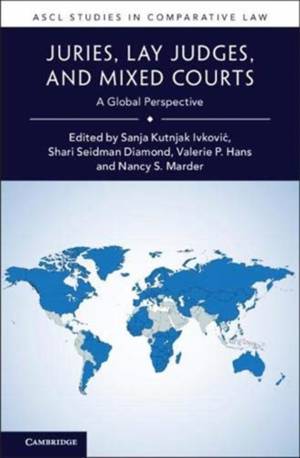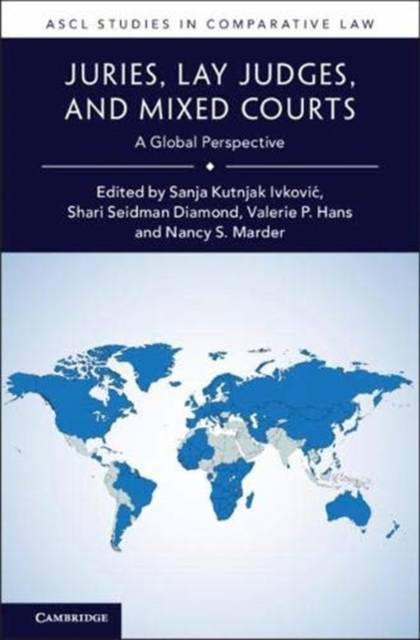
- Afhalen na 1 uur in een winkel met voorraad
- Gratis thuislevering in België vanaf € 30
- Ruim aanbod met 7 miljoen producten
- Afhalen na 1 uur in een winkel met voorraad
- Gratis thuislevering in België vanaf € 30
- Ruim aanbod met 7 miljoen producten
Zoeken
Juries, Lay Judges, and Mixed Courts
A Global Perspective
€ 187,45
+ 374 punten
Omschrijving
Although most countries around the world use professional judges, they also rely on lay citizens, untrained in the law, to decide criminal cases. The participation of lay citizens helps to incorporate community perspectives into legal outcomes and to provide greater legitimacy for the legal system and its verdicts. This book offers a comprehensive and comparative picture of how nations use lay people in legal decision-making. It provides a much-needed, in-depth analysis of the different approaches to citizen participation and considers why some countries' use of lay participation is long-standing whereas other countries alter or abandon their efforts. This book examines the many ways in which countries around the world embrace, reject, or reform the way in which they use ordinary citizens in legal decision-making.
Specificaties
Betrokkenen
- Uitgeverij:
Inhoud
- Aantal bladzijden:
- 350
- Taal:
- Engels
- Reeks:
Eigenschappen
- Productcode (EAN):
- 9781108483940
- Verschijningsdatum:
- 29/07/2021
- Uitvoering:
- Hardcover
- Formaat:
- Genaaid
- Afmetingen:
- 152 mm x 229 mm
- Gewicht:
- 675 g

Alleen bij Standaard Boekhandel
+ 374 punten op je klantenkaart van Standaard Boekhandel
Beoordelingen
We publiceren alleen reviews die voldoen aan de voorwaarden voor reviews. Bekijk onze voorwaarden voor reviews.










